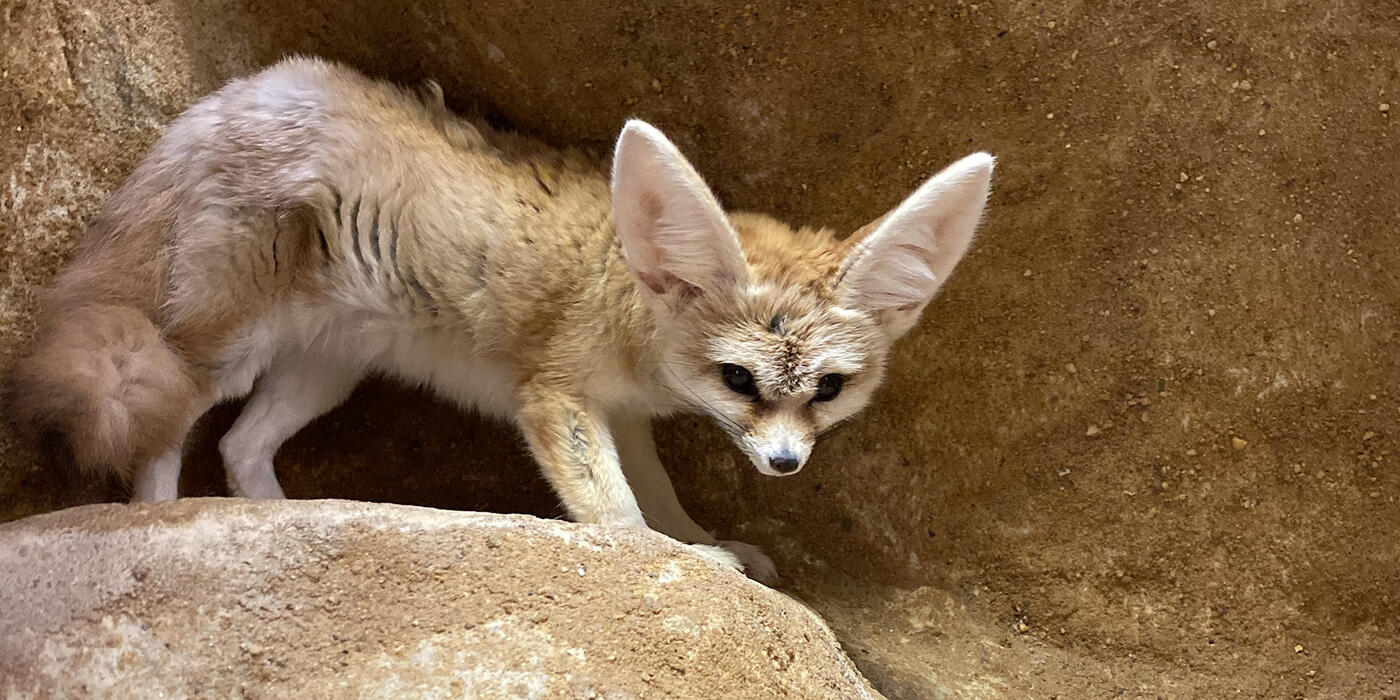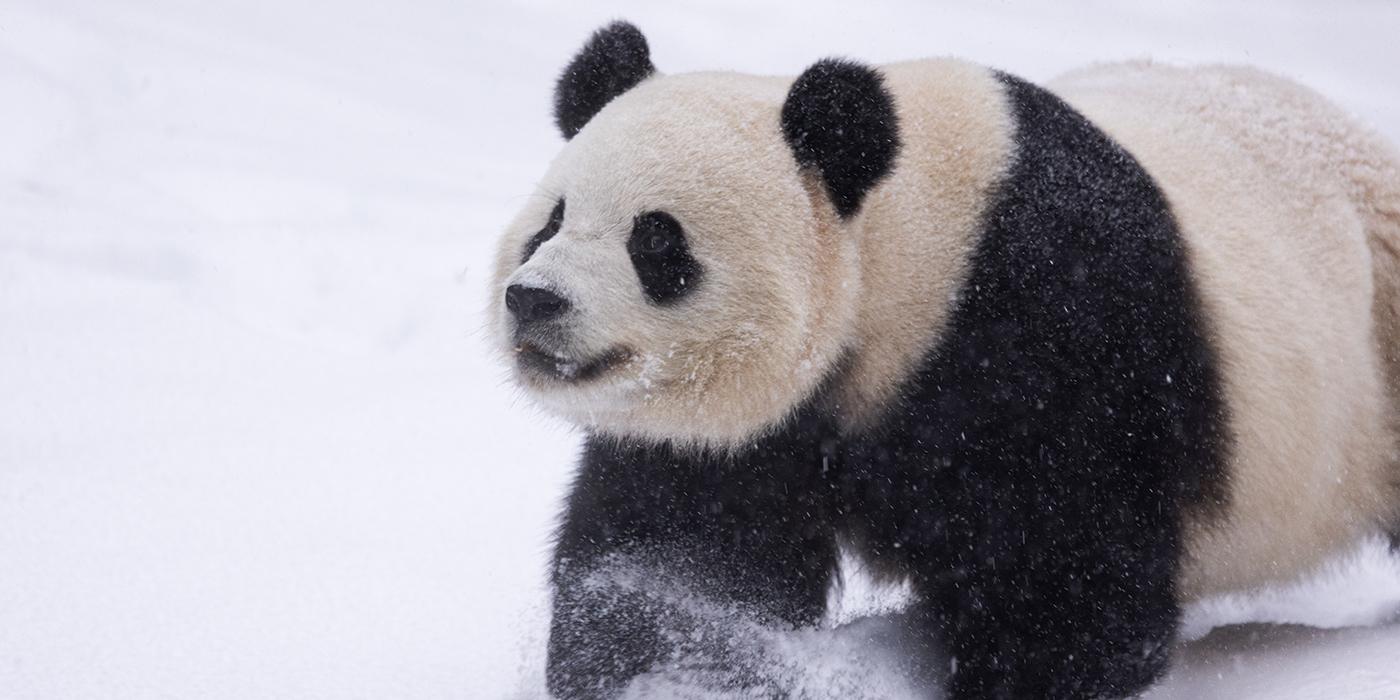Remembering Basil, Our Virginia Opossum
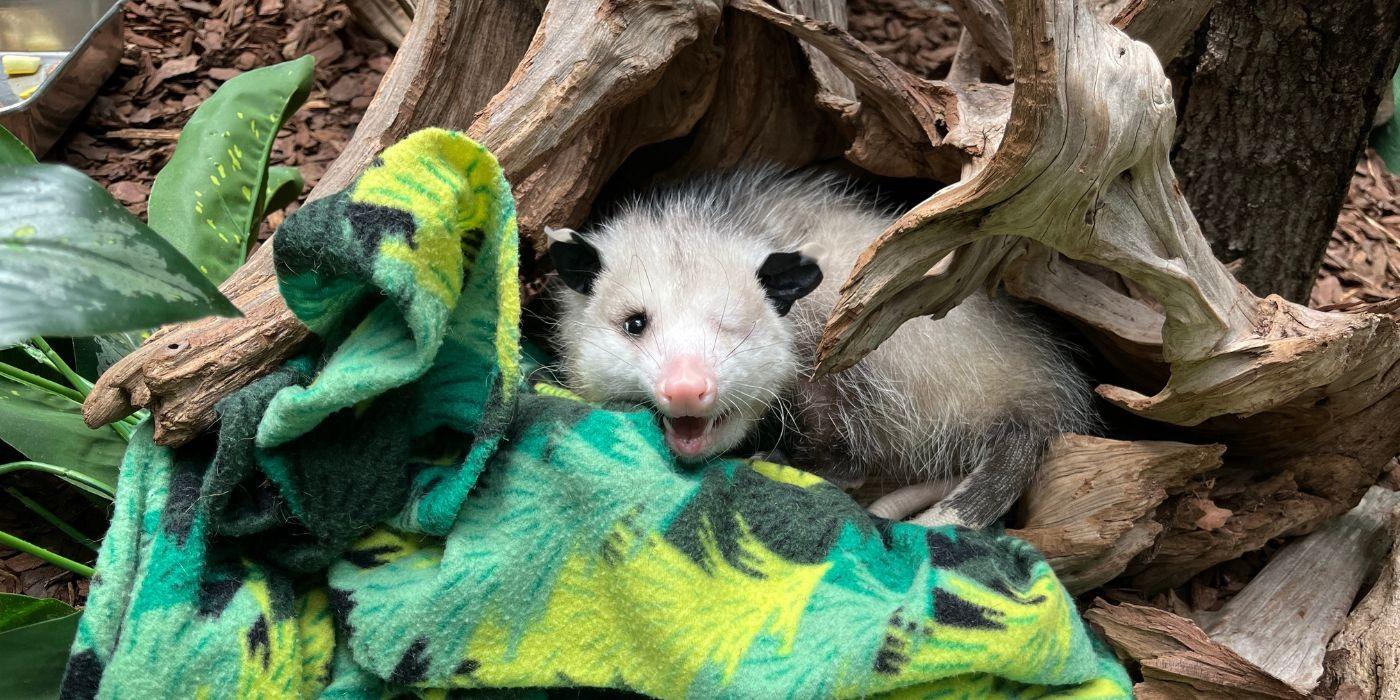
We are very sad to share that Basil—a rescued Virginia opossum who was favorite of many Small Mammal House visitors— died May 1. That morning during their rounds, keepers found Basil tremoring, tense and unable to move. They brought him to the Zoo’s hospital, where veterinarians performed an exam and administered treatments. In addition to known neurological issues, the exam revealed heart and gallbladder diseases. Due to his poor prognosis and declining quality of life, the animal care team decided to humanely euthanize Basil. At approximately 2.5 years of age, Basil far outlived the median life expectancy of 1.5 years.
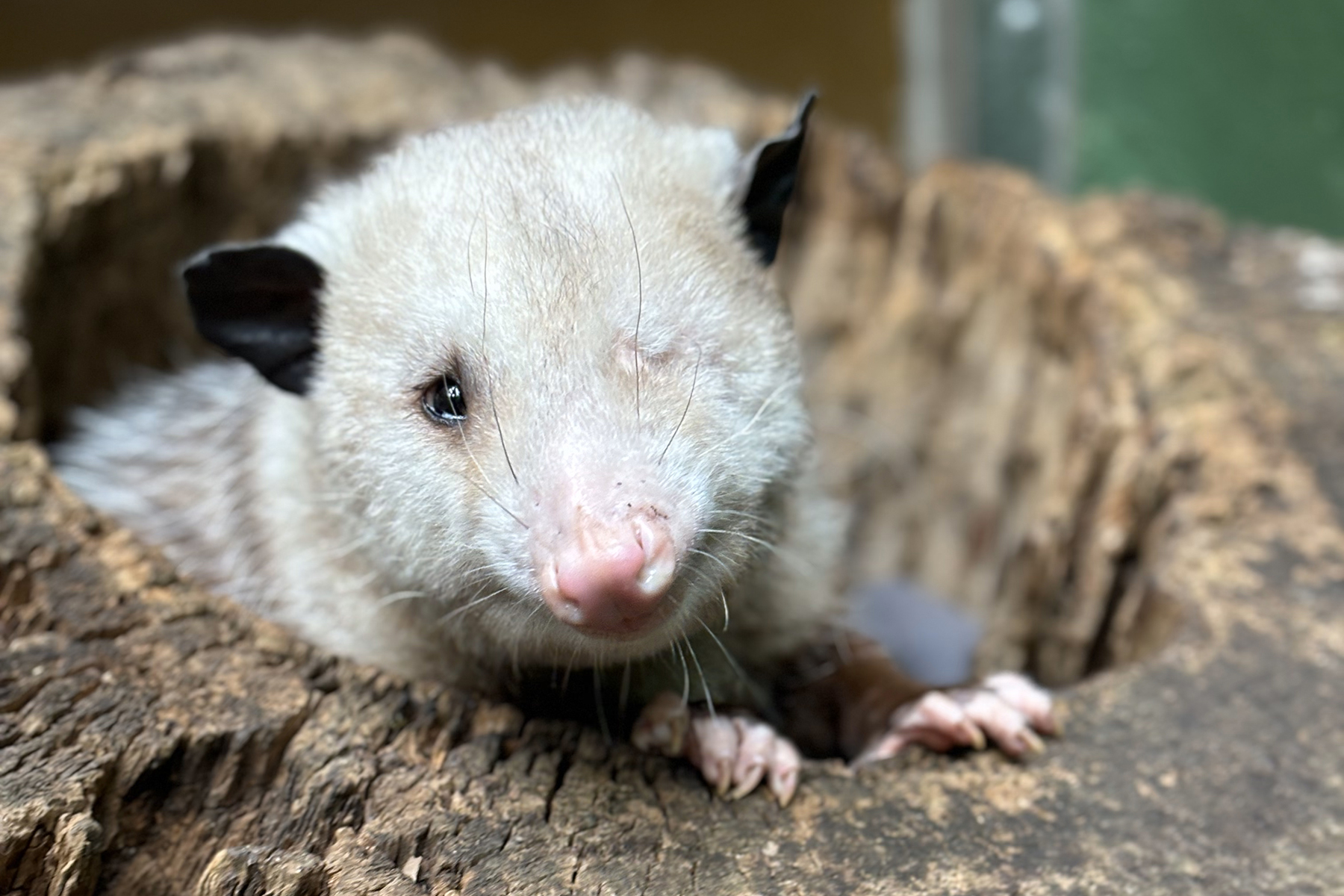
Virginia opossum Basil emerges from a hollow log in his Small Mammal House habitat. Credit: Mimi Nowlin/Smithsonian
In 2023, Basil was found injured from a predator attack. He was brought to City Wildlife, a local wildlife rehabilitation center, where their team treated his wounds and helped him heal. Because he lost one of his eyes in the attack, it was unlikely Basil would survive long in the wild with limited eyesight. When the Small Mammal House team heard Basil’s story, they agreed he would be a great candidate to reside at the Zoo and took him into their care.
Despite his injury, Basil was able to be rehabilitated, adapt and thrive in human care. He adjusted quickly and comfortably to life at the Zoo. His story so touched the hearts of the Washington, D.C., region that he became a bit of a celebrity. Following the departure of the Zoo’s previous pandas, Basil was crowned “D.C.’s Next Animal Obsession” in a NBC Washington public poll!
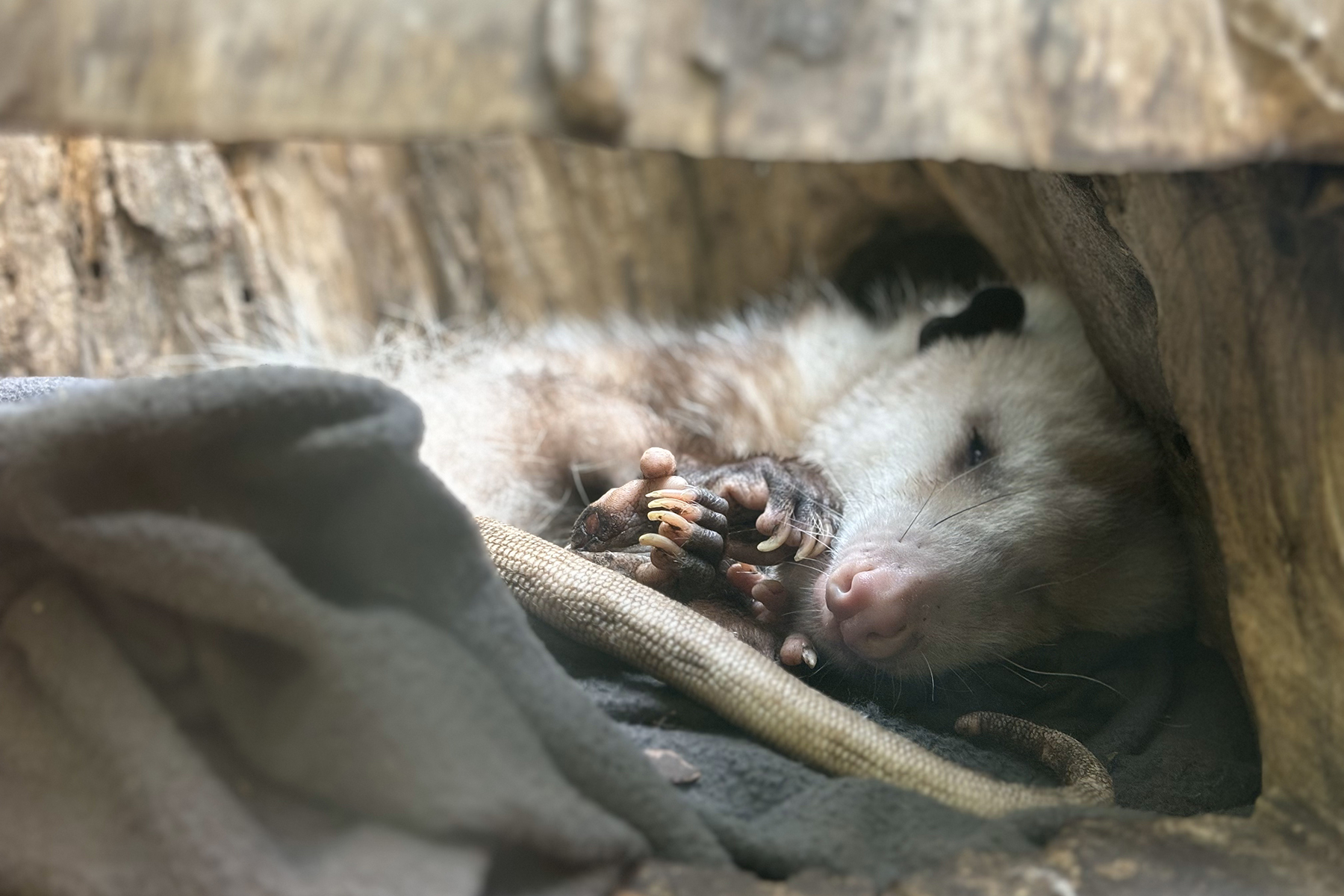
Basil snoozes inside a hollow log. Credit: Mimi Nowlin/Smithsonian
“Basil will be remembered as one of our most gentle and sensitive animals,” said animal keeper Mimi Nowlin. “His calm nature and sweet disposition made it easy for staff to work with him. He was endearing in the way he formed quiet bonds with his keepers and won over guests with his sweet face. Even with just one eye, he had a way of looking at you that made you feel calm and seen. He loved his fishy treats. Although he was often seen curled up resting in the coziest corner of his habitat, Basil always woke up for a snack.”
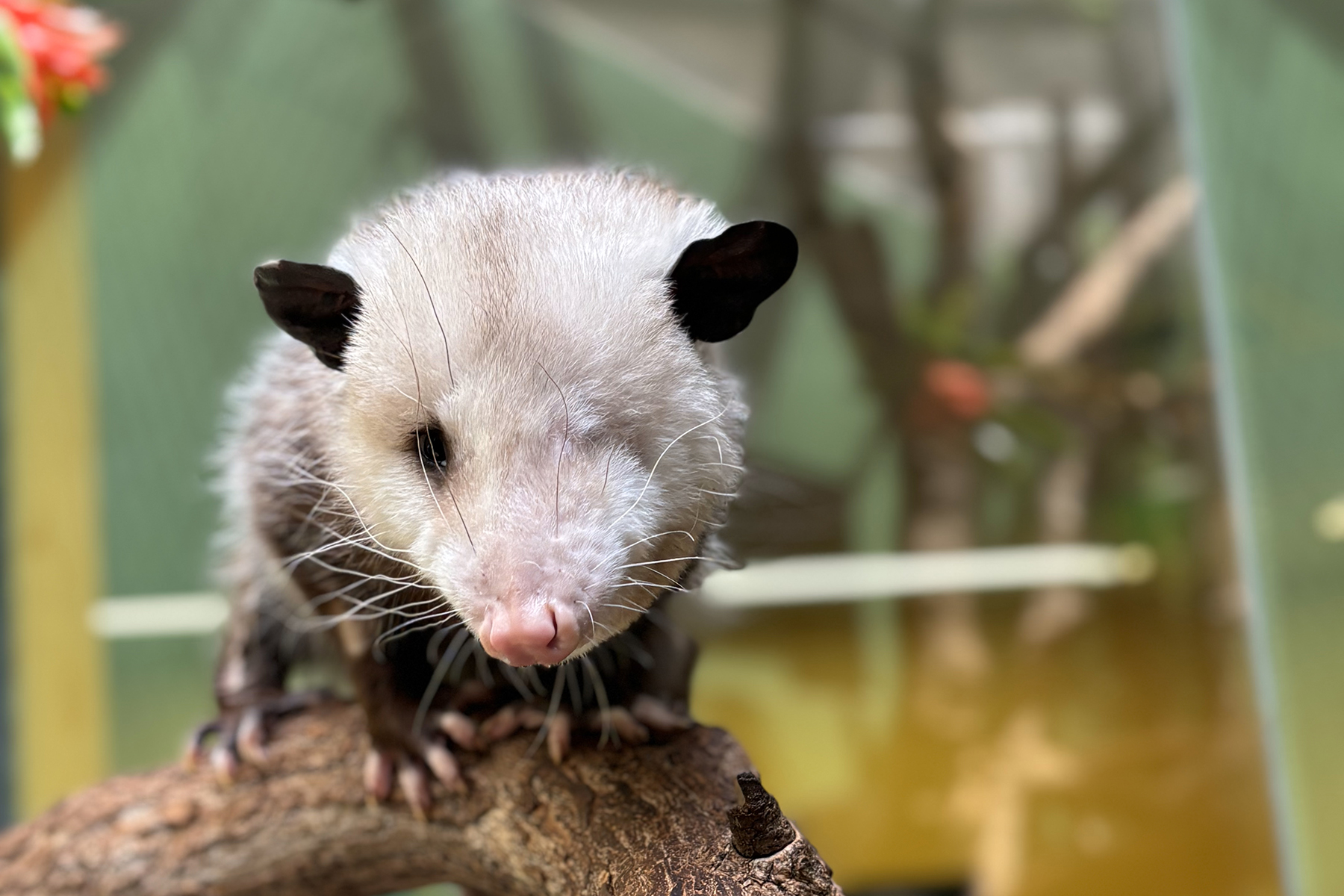
Basil climbs a branch in his habitat at the Zoo. Credit: Mimi Nowlin/Smithsonian
Basil helped share a vital message with visitors: opossums are not as scary or aggressive as they’re often perceived. Rather, they are shy, solitary, and non-threatening animals. In fact, an opossum in your backyard is doing important work! As scavengers and natural pest managers, they help control populations of rodents and insects (including ticks), keeping ecosystems healthy. As an animal ambassador, Basil reminded us all how vital it is to appreciate and protect local wildlife. We miss him dearly.
Every animal at the Smithsonian’s National Zoo and Conservation Biology Institute receives special care, but some need a little extra support to keep them healthy and active. Learn how our staff care for animals with impairments.
Related Species:

